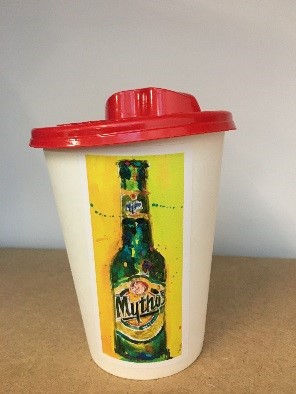
Do you always approach life logically, making careful decisions based on sound evidence and facts? Health warning! You may be suffering from abnormally high levels of rationality. This can be dangerous! Too much reason can clog up your brain and stifle your imagination. Many lecturers at the University of Edinburgh are suffering from this dangerous condition. Worryingly, they’re passing it on to students. Fortunately, poetry and laughter can go a long way to alleviate the symptoms. Act now before it’s too late. Join Dr Daphne Loads of the University of Edinburgh for a healthy injection of irrationality.
So this is the blurb for the show I’ll be presenting on August 10th as part of the Cabaret of Dangerous Ideas (CoDI). Curated by the University of Edinburgh as part of Beltane Public Engagement Network, produced by Fair Pley, and compered by comedian Susan Morrison, CoDI has been running since 2013. It provides researchers from Edinburgh Napier, Heriot-Watt, QMU and the UoE with the opportunity to bring their research to the public, during the Edinburgh Festival Fringe. The topics are provocative, the interactions are often hilarious, and the “performers” are frequently scared out of their wits. After every show, there’s an evaluation which asks members of the audience if they’ve changed their minds or begun to think differently; more often than not they have.

My aim with this show is to get people to think again about where “reason” fits (and doesn’t fit) in their everyday lives. I find this a fascinating topic, particularly in relation to teaching and learning. In his wonderful paper “Nurturing Soul in Adult Learning” John Dirkx (1997) highlights the distinction between “logos,” the way of logic, predictability and order, and “mythos,” the way of symbol, narrative, and myth. And he describes what can happen to students and teachers when logos takes over: “we limp along emotionally deflated and anaemic” and our classrooms become soulless.
According to Dirkx it is possible to restore soul to our teaching. He recommends reconnecting with mythos, through poetry, music and stories:
Constructivist, active, and experiential forms of teaching and learning, marked by high levels of uncertainty, ambiguity, contradiction, and paradox, invite expressions of soul.
Humour can help as well. If you have never come across the Annals of Improbable Research, then you are in for a treat. The writers set about the task of making people ‘laugh and then think’. Their report of a study into “Feline reactions to bearded men” provides a wonderful antidote to an overdose of logos. Here is an extract:
Cats were exposed to photographs of bearded men. The beards were of various sizes, shapes, and styles. The cats’ responses were recorded and analyzed. While each cat was viewing the photographs, it was held by a laboratory assistant. To ensure that the cats were not influenced by stroking or other unconscious cues from the assistant, the assistant was anaesthetized prior to each session.
So I’ll be inviting members of the audience to engage with ambiguity, complexity and metaphor. I’ll be asking them to read a poem. And I’ll be hoping that we can have a laugh together.
If you’d like to join us, you can book here for August 10th, 1.30-2.20pm, at the New Town Theatre.
References
Dirkx, J (1997) Nurturing Soul in Adult Learning New Directions for Adult and Continuing Education (74) pp 79-88


